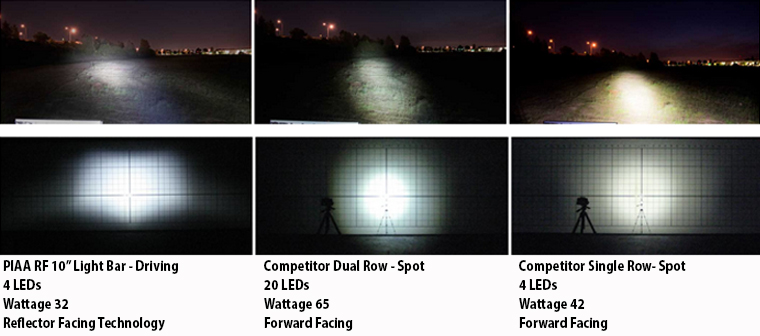The Goal
When we set out to perfect LED lighting, we knew we wanted
to bring innovation and a new standard of quality to the LED market. This led
us to design the industry first, Reflector Facing Technology (RFT).
What does it mean?
For starters, RFT simply means we aim the LED chips back
towards the reflector inside the lamp. Conventional LED lights are
“forward-facing,” which, as the name suggests, means the LED chips are all aimed
forward to produce light output.
Advantages
The advantages of Reflector Facing Technology are two-fold.
First, by aiming the LED chips towards our multi-surface reflector, we are able
to create a more direct and defined beam pattern. The reflector is precisely
designed to concentrate the light from the LED chips and project a focused beam
pattern to put the light where you need it. This ability to control the beam is
what makes our driving lights SAE compliant and prevents wasted stray light
from blinding oncoming drivers. The output from forward-facing LEDs comes
straight from the chips themselves, resulting in more stray light for a loss of
beam focus and overall output.

The second advantage comes from the ability of Reflector
Facing Technology to concentrate the light from the LEDs, allowing us to
harness the entire output of each chip. Getting the most out of each LED chip
means you get more light output with fewer LEDs, resulting in a lower power
draw to your vehicle’s charging system. Forward-facing LED lamps get a less
concentrated light output from each chip, meaning they must use more to produce
a strong light output.
Our RFT lamps
Reflector Facing Technology can be found in our RF Series LED Light Bars and LP Series LED lamps.